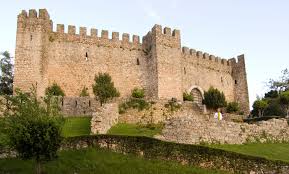In a dramatic turn of events in 1807, the Portuguese royal court, led by Queen Maria I and Prince Regent John, fled Lisbon to escape the advancing Napoleonic forces. This strategic retreat to Brazil marked a significant chapter in both Portuguese and Brazilian history, setting the stage for Brazil’s eventual independence.
The Key Facts
- The Portuguese royal family and court moved to Brazil in 1807 to escape Napoleon’s invasion.
- This relocation had profound impacts on Brazilian society, economy, and politics.
- The move laid the groundwork for Brazil’s independence in 1822.
The Flight to Brazil
On November 27, 1807, nearly 10,000 members of the Portuguese royal family, court, and senior officials embarked on a journey to Brazil. The departure was delayed by weather, but they finally set sail on November 29, just days before Napoleonic forces invaded Portugal. The British Royal Navy provided protection during the voyage, ensuring the safe passage of the royal entourage.
Arrival and Immediate Changes
The royal court arrived in Salvador, Brazil, on January 22, 1808. One of Prince John’s first acts was to open Brazil’s ports to friendly nations, breaking the colonial pact that restricted Brazil’s trade to Portugal. This move significantly boosted Brazil’s economy and marked the beginning of its transformation from a colony to a co-kingdom.
Economic and Social Transformations
Prince John took several measures to modernize Brazil’s economy and society:
- Opening Ports: Allowed commerce with friendly nations, benefiting Great Britain.
- Industrial Development: Encouraged manufacturing industries, diversifying the economy.
- Nobility Titles: Granted 145 nobility titles, mostly to Portuguese, consolidating the monarchy’s power.
- Infrastructure: Developed roads, public libraries, botanic gardens, and other institutions to modernize Rio de Janeiro.
The Court’s Influence on Brazilian Independence
The presence of the Portuguese court in Brazil had lasting impacts:
- Political: The court’s relocation laid the groundwork for Brazil’s independence. Prince Pedro, who grew up in Brazil, declared its independence in 1822 and became its first emperor.
- Economic: The opening of ports and encouragement of industry spurred economic growth, making Brazil a significant economic center in the New World.
- Social: The influx of Portuguese immigrants and the continuation of the slave trade drastically changed Brazil’s demographics.
Legacy and Conclusion
The transfer of the Portuguese court to Brazil was a pivotal moment in history. It not only safeguarded the Portuguese monarchy but also set Brazil on a path to independence and modernization. The changes implemented during this period had lasting effects on Brazilian society, economy, and politics, shaping the nation’s future.










